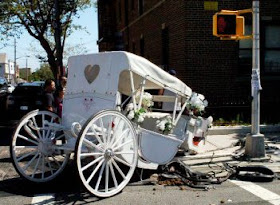There have
been reports that a scientist on the Scott expedition to the Antarctic of a
century ago who observed the relationships between penguins was deeply shocked
by what he saw. So much that he censored
his findings to give the impression that their habits were as regular as
people liked to think they should be.
He could
not imagine the reason for this, but my non-scientific explanation is that as
penguins spend a good deal of time going into low dives this might the
cause. That is lifestyle choices as you
might call it.
Looking at
the current debate on marriage and relationships in humans possibly the above
makes more sense than much of the present debate about who should marry who and
on what basis.
We really
need to look back at the past to understand the extent of the muddle we are
in. “Romeo And Juliet”, for example is
an illustration of what could go wrong.
A young couple become attached and take themselves off to a priest to
join them in marriage in God’s name, all very romantic.
The trouble
is that her father and mother have already contracted for her to marry somebody
else, a nobleman with good prospects and very well connected. It all ends in blood and tears, very much a
three handkerchief job whether you are watching the play, the ballet or the
opera versions.
Around the
drama, comedy, opera and ballet plots dealing with the past when a marriage was
in view the person that matters is the Notary or attorney or lawyer waving a
contract and the detail of that is sometimes critical. The contracts are about property,
settlements, money arrangements and provision for future events.
The State
is rarely ever involved or mentioned, save when the intervention of a person in
authority is needed as a plot device to either resolve issues to create more of
them. But there is usually a clergyman
around to add to the confusion and keep the plot going.
In the
Atlantic Isles at present we could fairly be said to have an unholy mess. Part of this is due to our recent beliefs in
individuality, media concentration on the romance (as in the past) or relief of
physical needs (as in the present) and the idea that the whole thing is very
personal.
Marriage
and its consequences in the past gave rise to a good deal of trouble and legal
strife which led to increasing intervention by the State for registration and
then legal prescriptions. To that must
be added all the paraphernalia of the Welfare State and attempts to
redistribute incomes.
In the
current debate whether other forms of partnership other than one male and one
female constitutes a marriage in legal terms there are now other issues that
are put aside in the fuss. One is where
people live together in support perhaps of one for another or by reasons of
descent or need for economy where marriage is excluded.
The other
is that the religions of the past in the Atlantic Isles were once essentially
Christian with some others which also had forms of marriage similar in
basis. This is no longer the case. There are now many of other faiths who have
different arrangements involving multiple partnerships.
Why should
they all be excluded from what amounts to contractual requirements determined
by the State which relate not just to matters of partnership, but probate,
taxation, benefits, property and a raft of other contingent effects? What is the answer?
Perhaps it
is quite simply that for tax, benefits probate and the rest the State should
treat everyone, no matter in what form of partnerships or relationship as
individuals and leave the rest to the lawyers and the religious leaders.

Don't children come into this?
ReplyDeleteThe State makes it very difficult to divorce; costly, time consuming and requiring application. Perhaps this is why some like the institution of marriage.